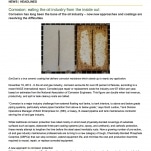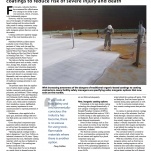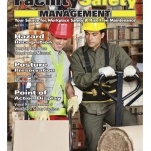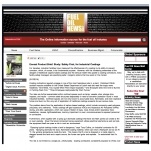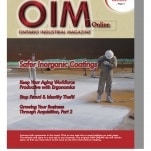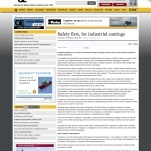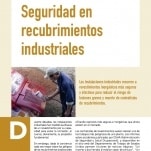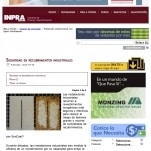Oil & Gas Product News Online – Corrosion
Corrosion: eating the oil industry from the inside out What caught my eye about EonCoat was its unique adhesion and chemical properties. If its hard outer shell is breached or knocked off, it still has corrosion protection where traditional coatings do not. Whether its coating is aged, beaten, or banged…
